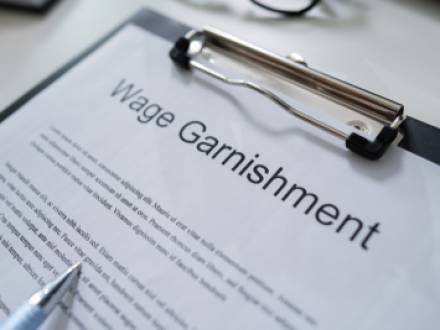Facing Wage Garnishment? Chapter 7 Bankruptcy May Stop It
 If you feel financially ambushed every time you get a paycheck and see that your hard-earned dollars have vanished before you have even seen them, you are not alone. While North Carolina creditors have limited options regarding the garnishment of wages, once a court order is in place, you may see your take-home pay shrink dramatically.
If you feel financially ambushed every time you get a paycheck and see that your hard-earned dollars have vanished before you have even seen them, you are not alone. While North Carolina creditors have limited options regarding the garnishment of wages, once a court order is in place, you may see your take-home pay shrink dramatically.
If struggles with debt are starting to feel like your new normal, the added pressure of wage garnishment can be overwhelming. For many, Chapter 7 bankruptcy can offer a powerful solution to garnishments and creditor calls, providing much-needed breathing room and allowing for a fresh financial start. If you are facing wage garnishment, along with other crushing debts, it may be time to speak to an experienced Union County, NC bankruptcy attorney.
Understanding Wage Garnishment in North Carolina
Wage garnishment is a legal process in which a portion of your wages is withheld by your employer and then sent to a creditor to satisfy a debt, typically under a court order. The most common debts that lead to wage garnishment include unpaid federal and state taxes, child support, credit card debt, and student loans. The North Carolina Department of Revenue and the IRS can garnish wages for unpaid taxes. Other creditors with a court order can also garnish wages.
North Carolina generally follows federal guidelines that limit garnishment to the lesser of 25 percent of disposable earnings (what is left over after mandatory deductions) or the amount by which disposable earnings exceed 30 times the federal minimum wage. In the latter case, the federal minimum wage is $7.25, so the amount garnished would be the lesser of $217.50 or 25 percent of your disposable earnings.
In some cases, garnishments for child support and alimony could potentially reach as high as 50 or 60 percent of your disposable earnings, with an additional 5 percent for past-due payments. The Department of Education can garnish up to 15 percent of your disposable income for unpaid student loans, but not more than $217.50.
Once an employer receives a wage garnishment order, they are legally required to withhold the stated amount from your paycheck. Under the Consumer Credit Protection Act, you may not be fired solely due to wage garnishment. Wage garnishment can leave you with a reduced net income, causing you to fall behind on rent, utilities, car payments, or other debts, as well as causing emotional stress and long-term financial instability.
How Can Chapter 7 Bankruptcy Stop Wage Garnishment?
In most cases, once you have filed for Chapter 7 bankruptcy in North Carolina, most wage garnishments will be stopped through the automatic stay. The automatic stay acts as a court order that prevents most creditors from any type of debt collection action, including wage garnishments. This provides you with a period of protection while the bankruptcy case is in progress.
If the debt being collected via wage garnishment is eligible for discharge through Chapter 7 bankruptcy, then the garnishment will be permanently stopped once your bankruptcy discharge is complete. Unfortunately, the automatic stay generally does not apply to wage garnishments for child support, alimony, student loans, and certain tax debts.
Special Considerations for Wage Garnishments and Chapter 7 Bankruptcy
Under certain circumstances, you may actually be able to recover some of your previously garnished wages (those within 90 days prior to the bankruptcy filing) if the amount was more than $600, once you file for Chapter 7 bankruptcy. Your bankruptcy attorney will file a motion with the court requesting the return of the garnished wages because the payments are considered "preferential transfers," where one creditor was paid instead of all creditors being paid equally. If you recoup some of your garnished wages, you will need to protect those wages through NC bankruptcy exemptions.
Contact a Mecklenburg County, NC Bankruptcy Lawyer
Chapter 7 bankruptcy could potentially offer you a lifeline, especially if you are dealing with wage garnishments. An experienced Charlotte, NC bankruptcy attorney from Blossom Law PLLC can help you through the often-complex process in the best way possible. To schedule your initial consultation, call 704-256-7766.


 704-BLOSSOM
704-BLOSSOM

